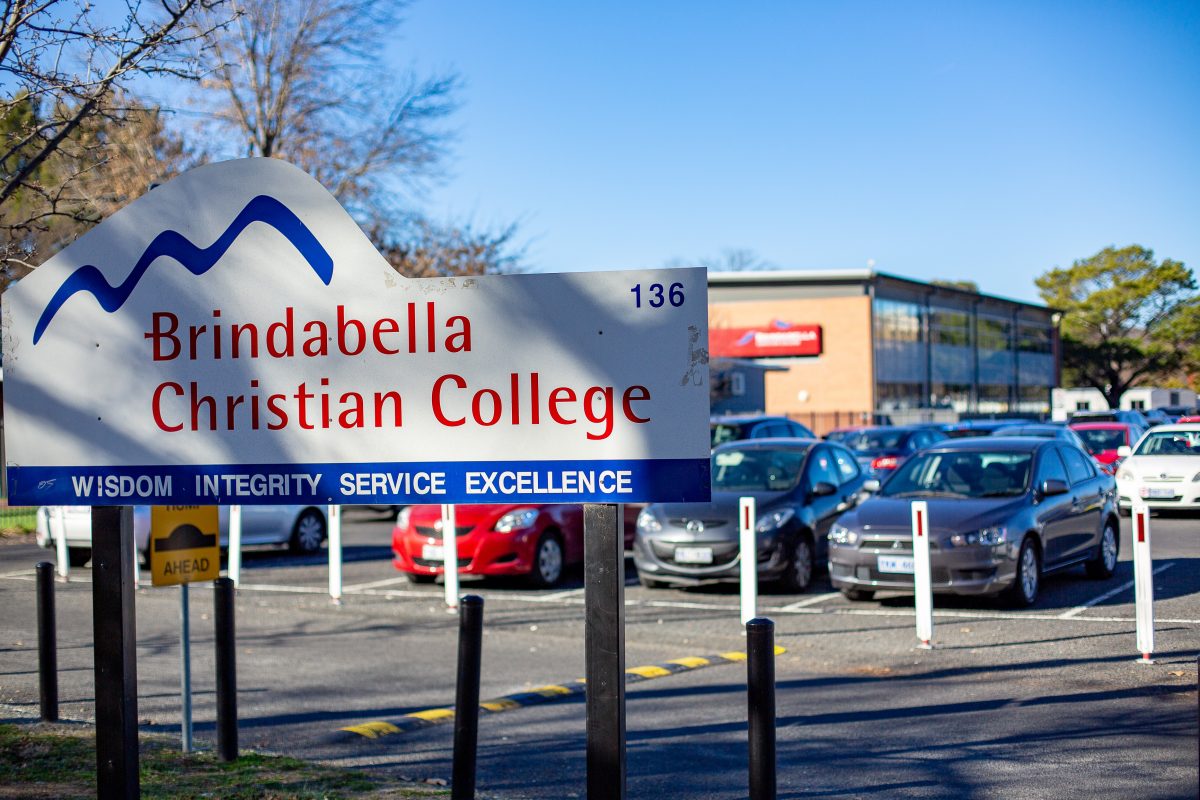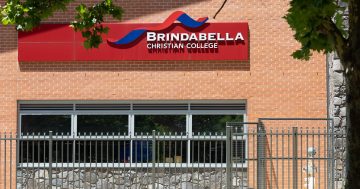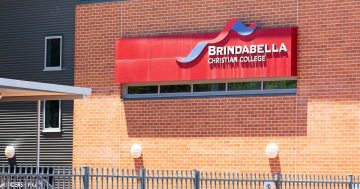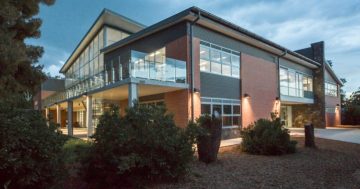
Brindabella Christian College is the subject of multiple deep concerns regarding governance and finances. Photo: File.
Material released by the Administrative Appeals Tribunal (AAT) shows that the Commonwealth Education Minister had profound concerns about Brindabella Christian College including “severe liquidity issues” and “a very high risk” to the school’s solvency.
The material includes allegations the school spent up to $500,000 a year on bus advertising and up to $400,000 a year on lawyers.
Brindabella Christian Education Limited (BCEL), the charity that controls the school, appealed a decision by the Education Minister in May 2021 that it was not a “fit and proper person” to operate BCC. The school receives more than $10 million annually in ACT and Federal Government funding.
An agreement is believed to have been reached between the Minister and BCEL, but no details have been released. However, the grounds for the Education Minister’s original decision have now been made public in an AAT submission authored by James Emmett SC. The matters were disputed in the AAT by BCEL’s silk, Tom Brennan SC.
The submission describes the BCEL Board, headed by longtime chair Greg Zwagjenberg, as inadequate, lacking appropriate size and diversity, and failing to include directors with relevant qualifications, including education, accounting, finance and property management, or parent representatives.
There was concern the board of three would not have a quorum when potential conflicts arose. Alyn Doig, one of three remaining members, is also a director of Life Unlimited Church at Charnwood, which owns the Brindabella Junior School site.
Record-keeping was described as difficult to access and board minutes were “inadequate”, containing “various inaccuracies”.
There were no minutes, for example, recording the June 2019 appointment of Brendan Major as BCC’s chief financial officer on a $16,000 monthly contract despite his lack of relevant qualifications. There was no evidence the market had been tested regarding the appointment’s value for money.
Although serious concerns were raised with external bodies, including the ACT Human Rights Commission and Commonwealth and Territory ministers, there was no evidence complaints were recorded or investigated by BCEL’s board. There were “limited policies and procedures available for staff, contractors or Board members”.
Despite multiple potential conflicts of interest among Board members, there were “only sporadic verbal declarations of interest”, conflicts were not disclosed in audited statements and “numerous related party transactions” were not disclosed.
Several related party transactions with Global Vision Technologies Australia were described as having “significant payment and benefit to Mr Zwagjenberg” but were not declared.
The construction of a solar tree by EVT Energy at a cost of $25,000 plus GST was also noted, and although the related party transaction was disclosed, the Minister’s submission said the disclosure “did not accurately describe the series of events”.
Using document searches by the BCC Reform group, Region can reveal that in 2022, Mr Zwagjenberg was the sole director of EVT Energy and Global Vision Technologies. Both have invoiced the school for work on solar projects and the school cafe.
In 2019, the Australian Charities and Not-for-profits Commission listed financials for BCEL show a $25,000 ACT Government grant was paid in full to EVT Energy. According to a press release from the school, this funded a “solar tree” structure connected to “our first state-of-the-art intelligent Solar BBQ for the use of our staff and students”.
The press release described a partnership between BCC and EVT Energy, “who donated $100,000.00 … to prototype an educational art form for the purpose of inspiring imagination and further the education of our students on helping to reduce global carbon emissions”.
EVT Energy says 10 per cent of profits go to “low socio-economic communities in need” through its community arm, the Imagination Foundation. Brindabella has widely advertised itself as Australia’s “First Commonwealth Certified Australian ZNE Carbon Neutral Private School”.
The Minister’s submission noted doubts over BCEL’s solvency and operation as a going concern.
Commonwealth-appointed auditors BellchambersBarrett said “there has been continuing diminution in BCELs financial viability and increasing deficiency of current assets compared to current liabilities” since 2016.
BCEL’s failure to meet profit and loss budgets, ongoing uncertainty about its banking arrangements and concerns regarding solvency were noted, as was BCEL’s failure to pay PAYG withholding to the Tax Office or lodge Business Activity Statements on time.
By December 2020, the submission says BCEL was “experiencing severe liquidity issues”, and there was “a very high risk to [BCEL’s] financial viability and solvency”. Cash on hand was, at one time, less than $10,000.
In March 2021, the National Australia Bank advised BCEL its loan facility would not be renewed and has since provided only short-term extensions to enable the College to refinance. An independent business review from KPMG commissioned by the NAB in 2022 suggested no clear indication the bank debt of more than $11 million could be serviced in the short term.
A former CFO informed KPMG of “unusually high costs” of $600,000 per year for cleaning, $300,000 per year for maintenance, $400,000 to $500,000 per year spent on bus advertising and $300,000 to $400,000 for lawyers.
Mr Zwagjenberg “denied the correctness of the concerns raised by [the former CFO] and/or suggested he was responsible for those concerns”.

















